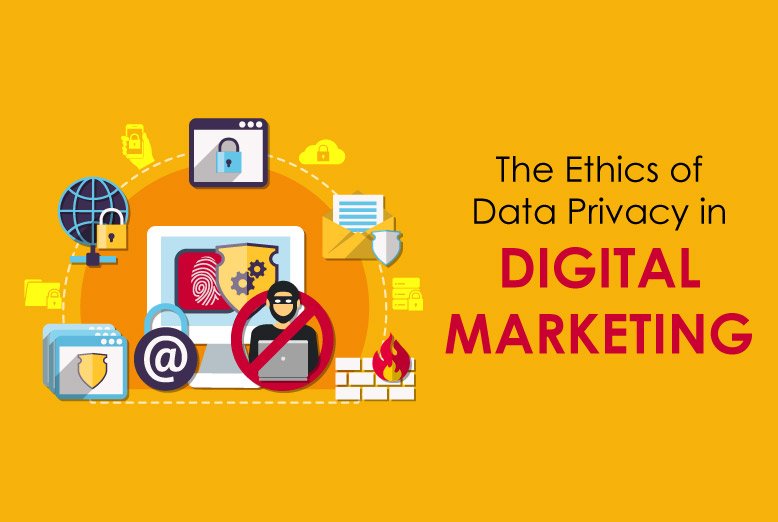In the digital age, data has become an invaluable asset, particularly in the realm of marketing. Companies collect vast amounts of user data to tailor advertisements and marketing campaigns, aiming to provide personalized experiences to consumers. However, this practice raises important ethical considerations surrounding data privacy. In this blog post, we will explore the ethical dimensions of data privacy in digital marketing and discuss the implications it has for businesses including SEO services UK and consumers alike.
Respecting User Consent and Transparency
One fundamental aspect of ethical data privacy in digital marketing is obtaining user consent. Companies must be transparent about the data they collect and how it will be used. Users should have the right to understand what information is being gathered, who has access to it, and for what purposes it will be utilized. Providing clear and concise privacy policies and consent forms allows individuals to make informed decisions about their data.
Avoiding Deceptive Practices
Digital marketers should steer clear of deceptive practices that manipulate or exploit users’ personal information. Misleading tactics, such as misleading opt-in checkboxes or hidden data collection mechanisms, erode trust and undermine the ethical foundations of data privacy. It is crucial for marketers to be honest and upfront about their data collection methods, ensuring that users have full control over their information.
Protecting Sensitive Data
The ethical handling of sensitive data is paramount. Personal details, such as financial information, health records, or biometric data, require heightened security measures. Businesses must implement robust data protection practices, including encryption and secure storage systems, to safeguard this information from unauthorized access. Failure to do so not only compromises user trust but also puts individuals at risk of identity theft and other harmful consequences.
Minimizing Data Collection and Retention
Digital marketers should adopt a minimalist approach when it comes to data collection and retention. The practice of collecting excessive amounts of data without a clear purpose is ethically questionable. Instead, marketers should strive to gather only the necessary information to deliver relevant and personalized experiences. Additionally, data retention should be limited to the period required to fulfill the intended purpose. Regular data purging ensures that personal information is not stored indefinitely and reduces the potential for data breaches.
Ensuring Data Security
Data breaches have become all too common in recent years, underscoring the importance of robust security measures. Organizations must invest in state-of-the-art cybersecurity technologies and implement strict access controls to protect user data. Regular security audits and vulnerability assessments should be conducted to identify and address potential weaknesses in data protection systems. Ethical data privacy practices demand a proactive approach to mitigating security risks.
Providing Opt-Out Mechanisms
Respecting user autonomy is a key ethical principle in data privacy. Digital marketers should provide clear and accessible mechanisms for individuals to opt out of data collection and targeted advertising. Opt-out options give users the ability to exercise control over their personal information and protect their privacy. By allowing individuals to make informed choices, businesses demonstrate their commitment to ethical data privacy practices.
As digital marketing continues to evolve, ethical considerations surrounding data privacy become increasingly important. Respecting user consent, ensuring transparency, protecting sensitive data, minimizing collection and retention, prioritizing data security, and providing opt-out mechanisms are essential principles that guide ethical data privacy practices. Adhering to these principles not only safeguards user trust and confidence but also ensures the long-term sustainability of digital marketing strategies. By prioritizing ethics in data privacy, businesses can foster a more respectful and mutually beneficial relationship with their consumers.
ALSO READ: 15 Sensible Tips for Growing Your Business















